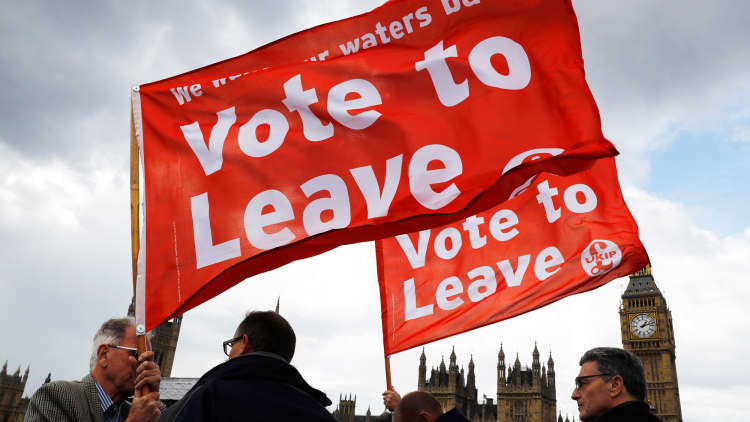



Breaking up is hard to do – and the European Union has been treating the U.K. like it's a spouse on the verge of leaving a long, discordant marriage.
Take European Council President Donald Tusk urging U.K. voters: "Stay with us. We need you. Together we will cope with future challenges. Apart it will be more difficult." Is this the international diplomacy version of: "Think of the children"?
Even the notoriously uncompromising German Finance Minister Wolfgang Schauble promised to change, saying in a statement: "We won't simply be able to go on as before."
But why is the U.K. so important to the EU? With U.K. voters wavering over whether to stay or go and the latest opinion polls suggesting a close race to the finish, we look at what the country on Europe's Atlantic fringe has brought to the trading bloc.
To begin with, it was the famous U.K. war leader Winston Churchill who was one of the first to call for a "United States of Europe", back in 1946.
Today, the U.K. makes a substantial financial contribution to the trading bloc's budget: 11.342 billion euros in 2014 ($12.78 billion) set against total EU spending in the U.K. of 6.985 billion euros.
Yet aside from the euros and cents, the U.K. also adds extra legitimacy to the European project, and has historically helped balance the region's two other biggest economic and political players, France and Germany.
"Many of the EU's liberalizing achievements are due to the role the U.K. has played, with like-minded countries, for example in pushing for the single market program, the liberalization of goods and services markets, and enlargement to 28 countries," according to Simon Hix, professor of political science at the London School of Economics and Political Science.
"If the U.K. withdraws, the liberal democratic project for Europe will become marginalized, as the EU will become dominated by the corporatist and bureaucratic instincts of some of the French and German elites and the politics of the growing populist right movements."


